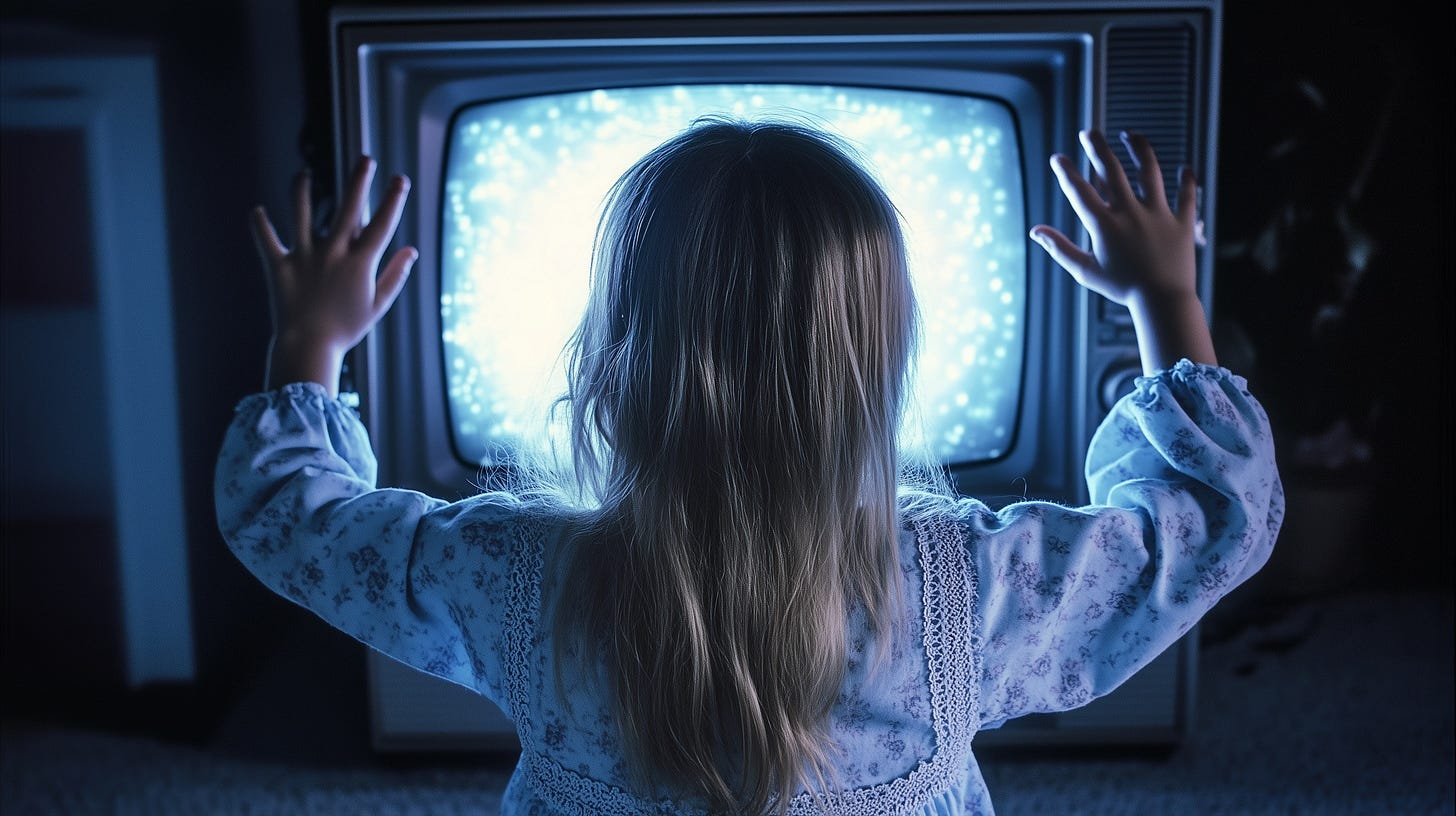Scary movies have been a staple of popular culture for over a century, offering a unique blend of adrenaline-pumping fear and entertainment. For some, watching a horror film is a heart-racing thrill, while for others, it serves as a way to explore deep-seated fears in a controlled environment. Personally, my all-time favorite scary movie is Poltergeist. I have a special connection to it because, after watching it with my brother, we walked out of the theater and someone pointed out how we looked exactly like the kids in the movie. We were the same age as those characters, and having lived in an early 1900s house that I was convinced was haunted, the movie’s supernatural elements hit particularly close to home. However, one movie I refuse to watch is The Exorcist. It’s partially because it’s based on a true story from St. Louis, my hometown, and the hospital where the exorcism occurred is now permanently closed due to unexplainable paranormal activity.
Scary movies are more than just frightful fun—they tap into our psyche in ways that can have surprising benefits.
5 Benefits of Watching Scary Movies
Stress Relief and Adrenaline Rush
Scary movies trigger a fight-or-flight response, releasing adrenaline and dopamine. This can actually provide stress relief as it allows viewers to experience fear in a safe, controlled environment. The release of these hormones can leave you feeling exhilarated and more alert afterward.Improved Coping Skills
Watching horror films can help desensitize you to fear. When you willingly engage with frightening material, your brain learns to better manage stress and anxiety in real life. It’s a strange but effective form of exposure therapy!Boosting Your Immune System
Believe it or not, studies suggest that watching a scary movie can temporarily boost your immune system. The adrenaline surge increases the production of white blood cells, which are essential for fighting off infections.Social Bonding
Horror movies often become a shared experience. Whether you're watching with friends or discussing theories afterward, they provide common ground for social interaction. Sharing a fear-inducing experience can also enhance bonding—ever wonder why we love watching horror movies on dates?Mental Stimulation
Horror films stimulate your brain in ways other genres don’t. Plot twists, anticipation, and the need to understand the supernatural force you to think critically. These movies challenge your ability to predict what happens next, making them mentally engaging as well as entertaining.
Cultural and Historical Significance of Scary Movies
Horror movies have long reflected societal fears. In the 1930s, Dracula and Frankenstein mirrored anxieties around science and the unknown. In the 1970s and 80s, films like Halloween and Nightmare on Elm Street played on fears of home invasion and the fragility of suburbia. And more recent films like Get Out have used the genre to explore racial tensions and societal divisions.
Conspiracy theories often follow scary movies, adding another layer of intrigue. For instance, the Poltergeist series is infamous for what’s known as the "Poltergeist curse." Several actors from the series, including child actress Heather O'Rourke, tragically passed away soon after filming. Some believe the movie set was cursed due to the use of real skeletons in a few scenes, which sparked rumors of supernatural retribution.
Meanwhile, The Exorcist is steeped in mystery due to its basis on a real-life exorcism that took place in St. Louis. Many believe the demonic events that inspired the film have led to strange happenings at the now-shuttered hospital. This has made the film even more terrifying for me, especially since I grew up in the area and have heard the local legends.
The Dark Side: Conspiracy Theories Around Scary Movies
Horror movies have also inspired a range of conspiracy theories. From curses to haunted sets, these tales only enhance the mystique around the genre. As mentioned earlier, the Poltergeist curse has become legendary, with fans speculating that the use of real human remains in scenes might have angered the spirits. This theory adds an eerie layer to the movie, making it even more terrifying for fans like me who already felt a deep personal connection to the film.
There’s also a long-standing conspiracy around The Exorcist, involving reports of on-set accidents, fires, and strange illnesses among the cast. Given that the story is based on real-life events, these occurrences have only fueled the belief that the production was cursed from the start.
Final Thoughts
Whether you’re a horror movie enthusiast or you prefer to keep a safe distance from the screen, there's no denying the impact scary movies have had on culture and history. They provide a space to explore our deepest fears, cope with stress, and even enjoy a good scare with friends. So next time you're looking for a film that offers more than just entertainment, consider putting on a horror movie. Just maybe not The Exorcist—some things are best left unwatched.





